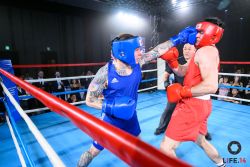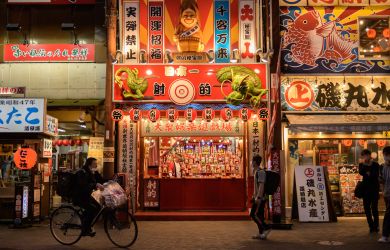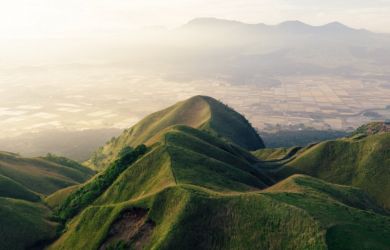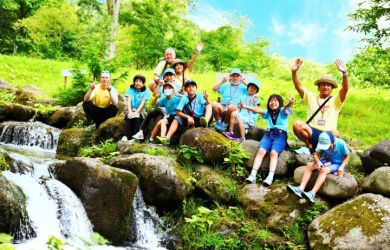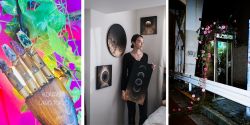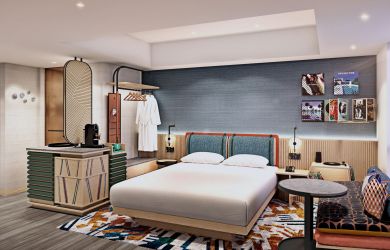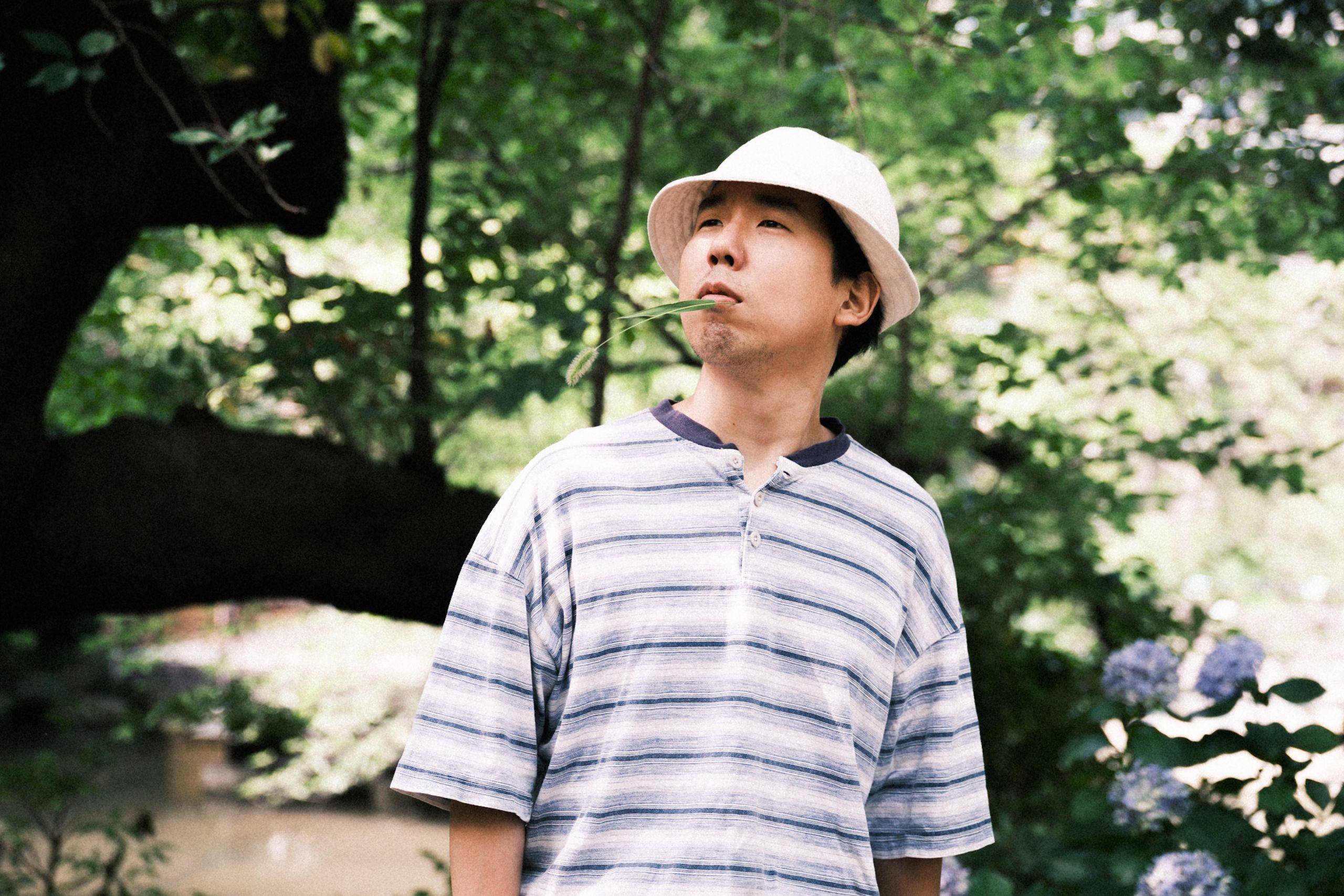
On a weekday afternoon in July, perfect weather for the beach, the vocalist of Japanese indie rock band never young beach Yuma Abe stood in the heart of Harajuku, waiting for his manager to head into Universal Music’s office for an interview with Metropolis. Instead of a trendy hand fan and sunglasses, he was wearing vivid yellow swim shorts and sandals with a bucket hat, as if he were a character from a Ghibli summer film.
While the photographer was setting up, our conversations revolved around the controversial Jingu Gaien Redevelopment Project and Abe’s concerns about how “flat” Tokyo is. “The same-looking buildings are duplicated everywhere, and everyone is living in a small studio which seems to be reflected in our personality,” Abe tells Metropolis. “If you want to play drums, you’d have to book a rental studio instead of playing them at your place. I would rather hear drum sounds from my neighbors, even if it bothers me. The whole city has lost its expression.”
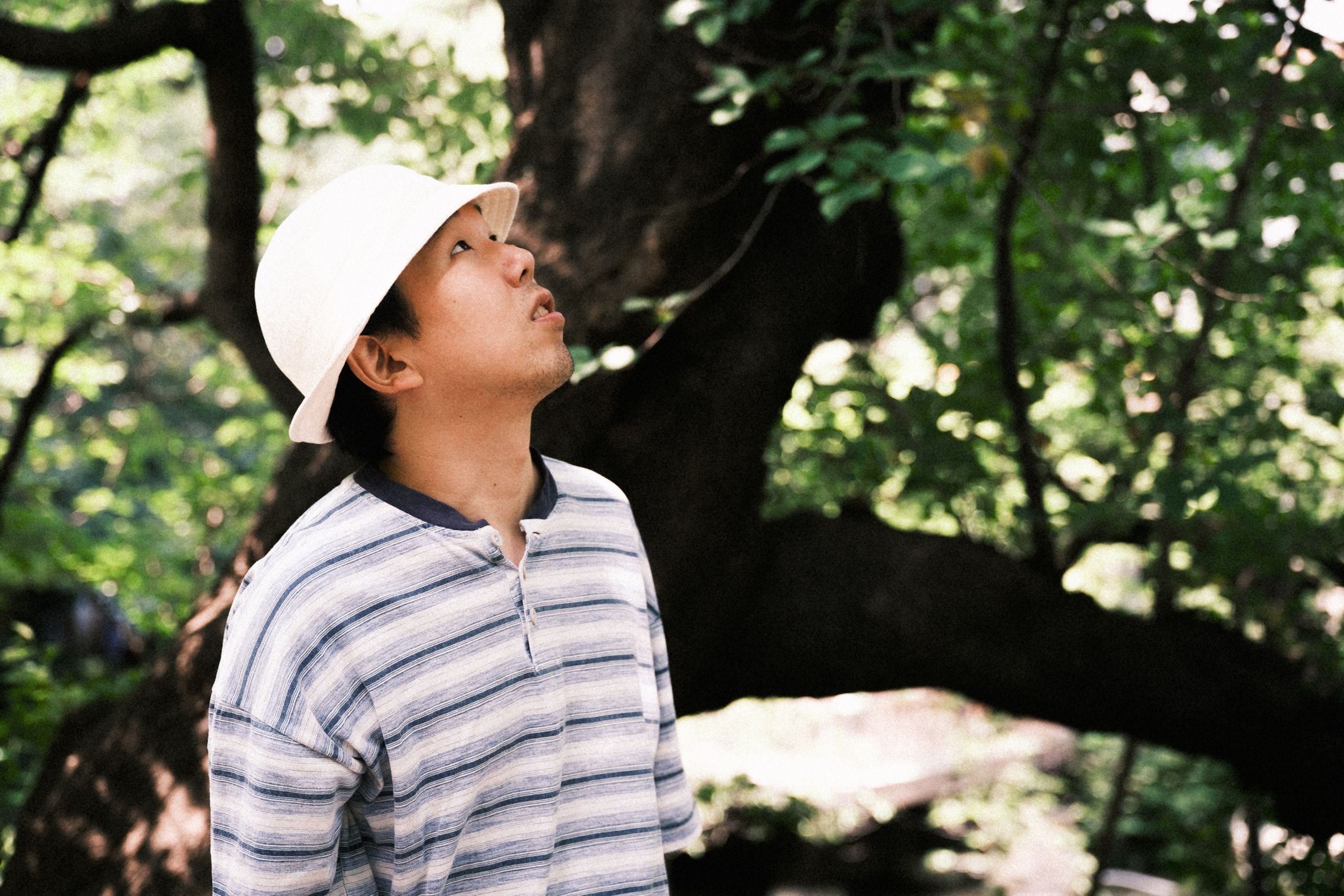
His timeless summer outfit shows his admiration for Kiyoshi Atsumi’s Tora-san film series, which he thinks represents the capital’s most raw and vibrant period. The Tokyo native found himself drawn to the series after releasing his first solo album Fantasia in 2021, a collection of ambient-esque and introspective songs.
“I didn’t live in that time period and I assume everything was much more chaotic compared to the current nearly organized metropolis, but the Tora-san series brings me a sense of nostalgia,” continues Abe, “even though his words are sometimes rough or cruel, and at times controversial, there’s a tenderness at its core.”
His second solo album, Surprisingly Alright, diverged from the previous album’s melancholy introspectiveness to a more uplifting note. This album has a tropical and unique atmosphere from the playful use of onomatopoeia and the Edo dialect. Unlike pop songs with overtly positive messages, the lyrics are more fluid and a clear theme runs through the entire album: stay grounded and don’t be bothered by trivial things. Blending his roots with his favorite music, such as David T. Walker or Buddy Fo & His Group, the album is reminiscent of his band’s debut album YASHINOKI HOUSE and shows where Abe is as a Japan-based artist.
Ahead of his first solo show on August 3rd, Metropolis sat with Yuma Abe to talk about his album, how he navigates living in Tokyo, and what role authenticity plays in making music.
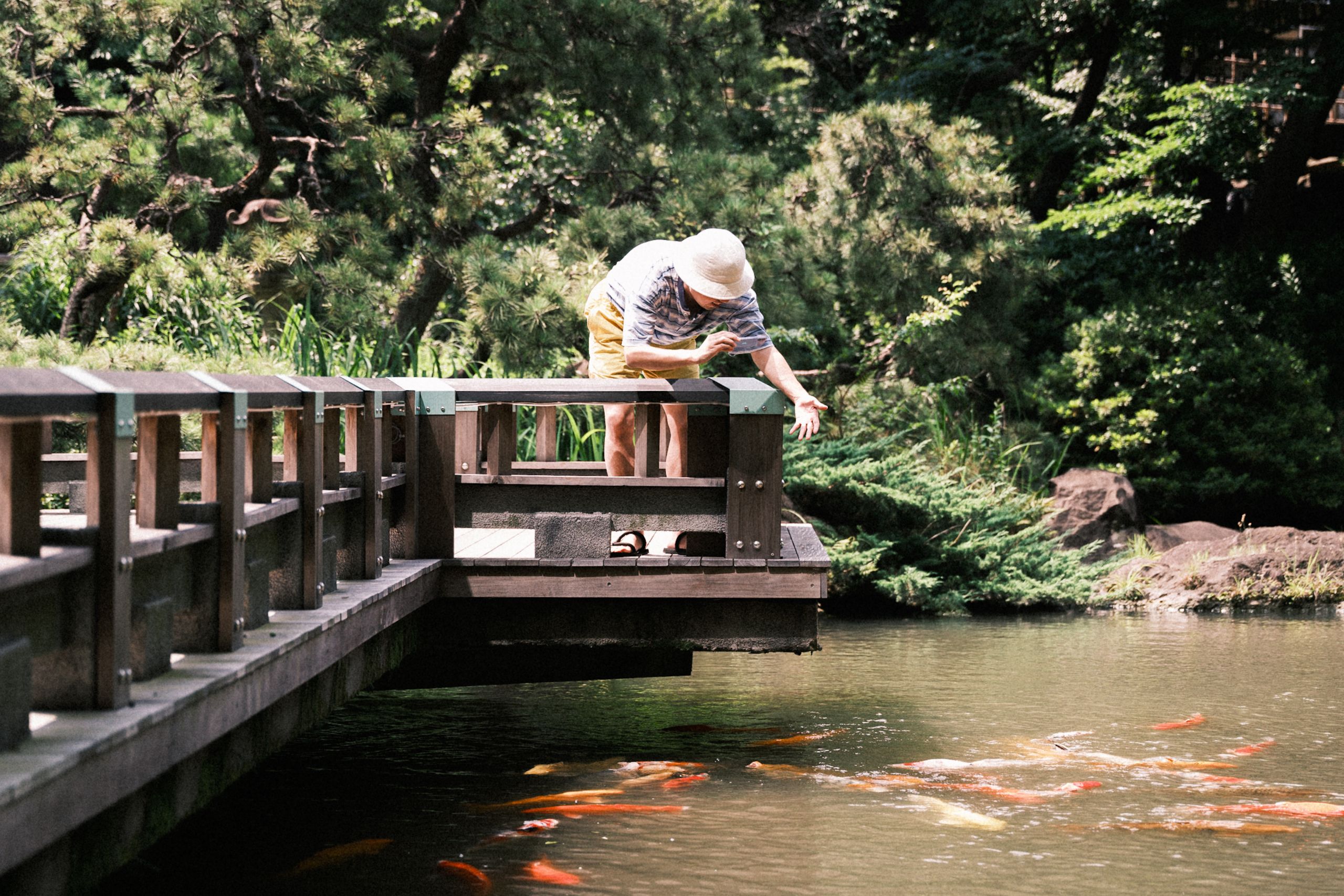
Metropolis: Your solo project started during the pandemic, partly to reflect on your feelings during that time. How did you come to work on the second solo album?
Yuma Abe: After putting out the first album, some people from overseas started to follow my Instagram, which was my first touchpoint with a global audience. This made me realize my music was actually spreading outside of Japan. But I also felt limited in what I could do within the Western music format—I wouldn’t be able to stand out in the global scene just by copying it. I love music that is connected to its roots, which made me value my identity as an artist living in Japan.
M: Why do you think embracing your identity in music is important?
YA: A couple of years ago, I saw Toro y Moi’s show in America and was blown away. It was at a huge open-air stage where old couples were dancing their hearts out. Some were eating delivery pizza while having wine; others were laying down on the grass without paying much mind to the performance. It was almost shocking to me because that would rarely happen in Japan.
Also around that time, I had long hair that was dyed towards the ends. However, after seeing real hippies in San Francisco, I realized I wasn’t anywhere close to the real thing. I felt embarrassed and went back to short black hair right away. It’s important to stay authentic to express my identity. Admiration isn’t imitation.
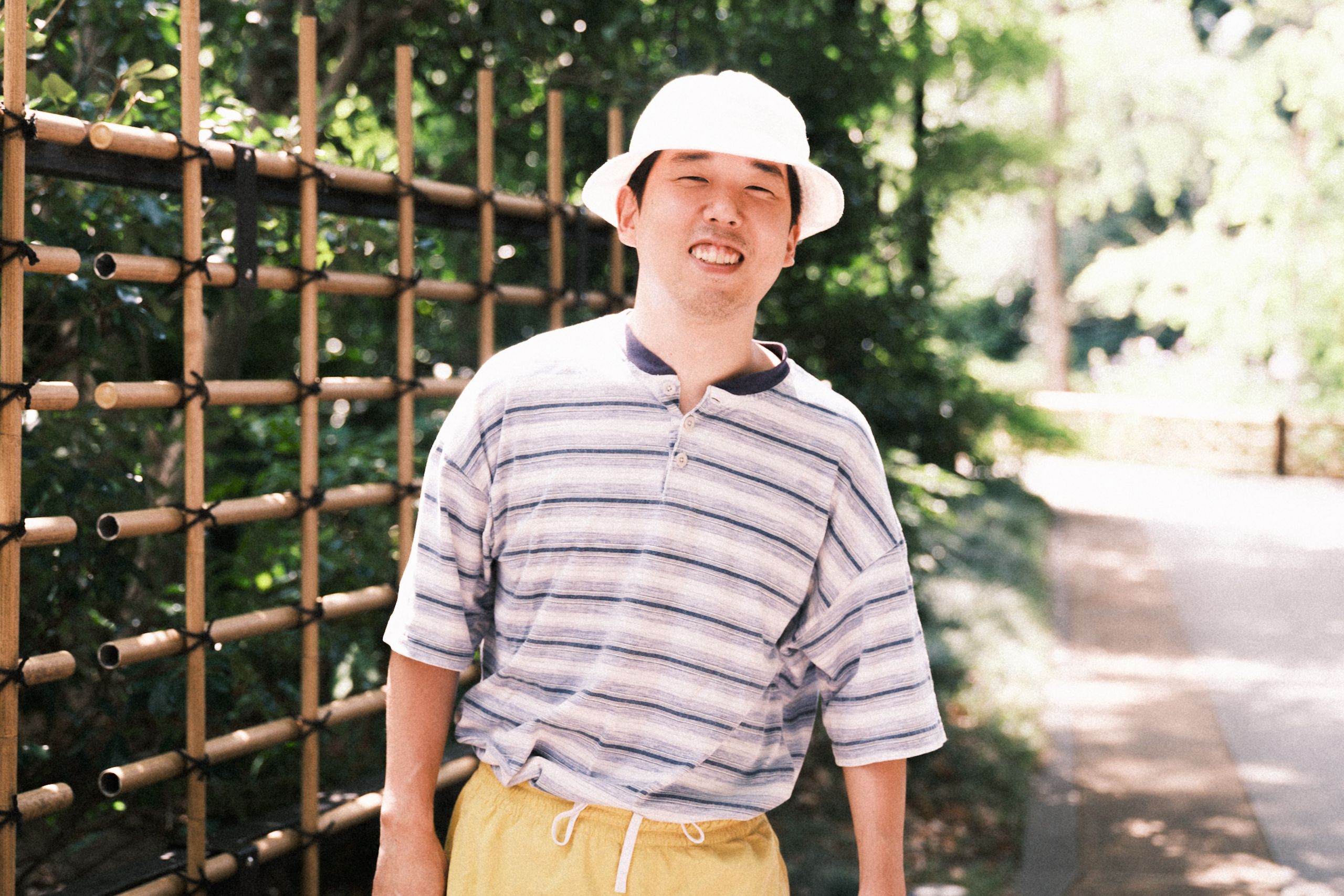
M: Does that link to your fascination with the Tora-san series?
YA: Absolutely. I started watching it last year and began learning about Japanese Kayokyoku, like Chiemi Eri or Shizuko Kasagi. The language’s directness seemed more powerful and raw back then, perhaps because there was a sense of desperation and urgency toward rebuilding the country after the war. Their way of speaking might not fit in current Japanese society, but there’s a tenderness at its core. It’s hard for me to believe we live in the same country as them. We only inherited the system from that period, and in the process we lost their eagerness to flourish, leading to our current unemotional state. Still, knowing those people used to exist gives me a sense of comfort.
M: The lyrics in this album are both fluid and grounded in a clear message, just like Kiyoshi Atsumi’s character Tora-san. What made you choose to stray from modern pop songs?
YA: I know creating simple and easy-to-understand content like TikTok is effective, but I’m not very fascinated by that. I find joy in the subtleties of doing the same activities with friends even when visiting different places. Nothing dramatic happens, but it’s definitely something. That’s what sparks my creativity.
Also, being meaningful feels boring. Constantly saying the right things feels inauthentic because we all have flaws. In his renowned Musekinin Otoko (Irresponsible Man) film series, Japanese comedian actor Hitoshi Ueki acted irresponsibly, but the whole country loved him. That’s a totally different vibe compared to now. I’m often lazily lying in bed, knowing I should be writing songs (laughs). But oh well, I don’t try to hide it.
M: How do you separate your solo project from the music in the band never young beach?
YA: Overall, making music is my salvation as an outsider in society. It’s purely fun. I don’t have much responsibility for my solo project as it’s independently released. Even if the sales aren’t good, I can laugh it off. I still have conflicted feelings about my solo project: I don’t want people to listen to it, but at the same time, I do. I just hope my music resonates with like-minded people and feels relatable to them. Whether for myself or for the band, making music is ultimately important.
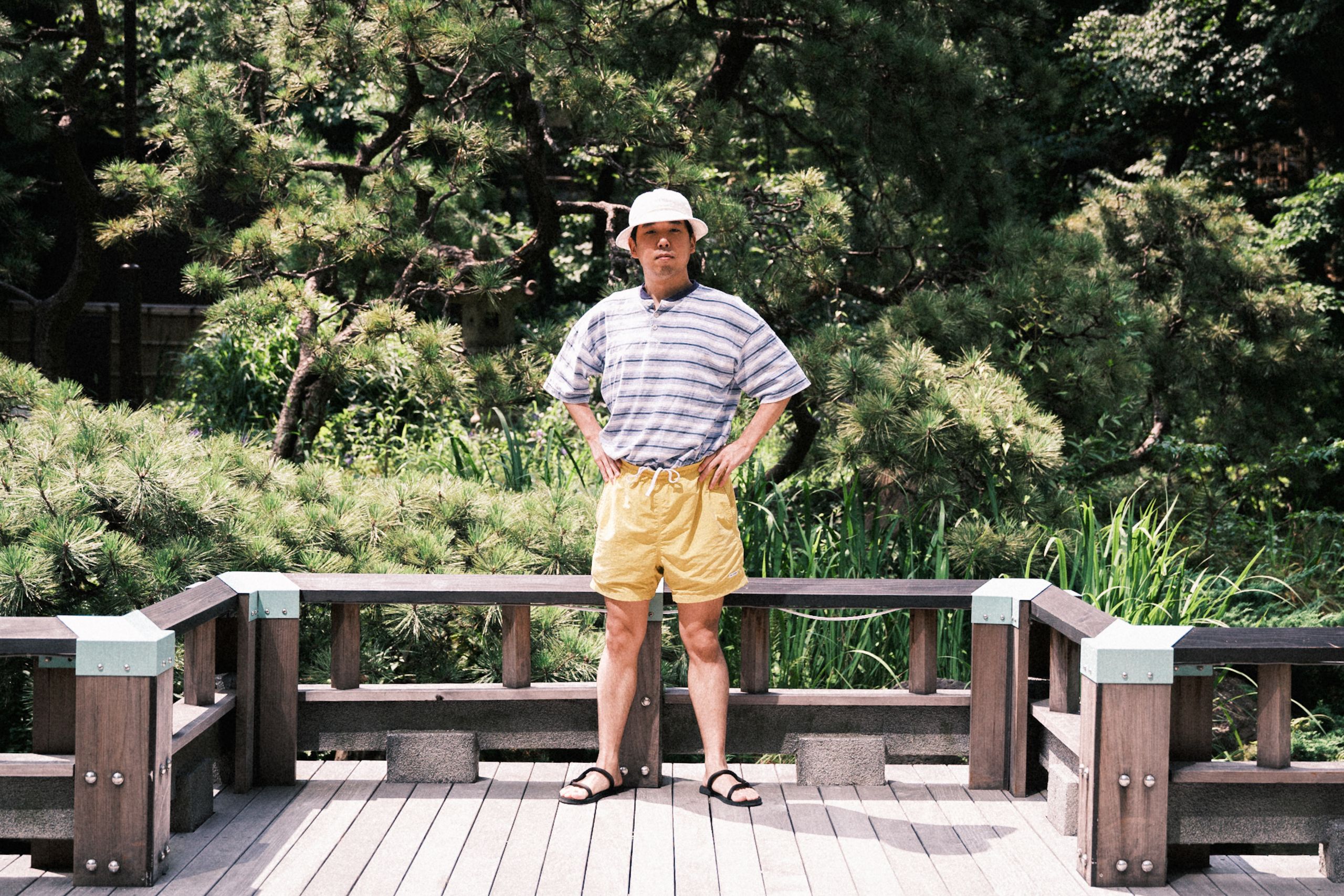
M: The upcoming show will be at Akasaka’s Sogetsu Hall, a historical art venue built in 1958. Why did you decide to perform your new album here?
YA: Yes. I was looking for somewhere different from the usual music venues where I’m used to performing. I also believe aesthetics are relevant to music, even if some may disagree. Everything influences the music you make. Since this will be my first solo performance, it’s a fresh place to play, and I can be on the stage with an exciting energy. I’m looking forward to it.
Yuma Abe “Surprisingly Alright” Show at Sogetsu Hall
Date: August 3rd (Thu) OPEN 18:00 / START 19:00
Venue: Sogetsu Hall
Ticket:¥5,000
